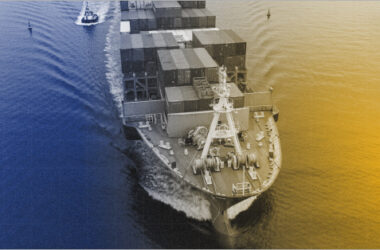Marine Insurance plays a crucial role in safeguarding businesses engaged in maritime trade. With India’s extensive coastline and its position as a hub for international commerce, Marine Insurance is essential for protecting cargo from unforeseen risks during transit. A Marine Insurance Policy covers goods against losses or damages during transportation, whether by sea, land or air.
Marine Insurance in India operates under key principles that define the responsibilities of both the insurer and the insured. These principles ensure fairness, transparency and compliance with regulations, forming the foundation of Marine Insurance policies. In this blog, we will explore these fundamental principles, their significance and how they work in practice.
Marine Insurance: An Overview
Marine Insurance is a type of insurance that provides financial protection against the loss or damage of goods, ships and cargo during transit by sea, land or air. It is governed by the Marine Insurance Act of 1963 and is essential for businesses engaged in domestic and international trade. The most common type is the marine cargo insurance policy, which covers risks such as fire, theft, collision, natural disasters and other perils that may occur during transportation. Marine Insurance ensures that exporters, importers and logistics companies can safeguard their financial interests, maintain smooth supply chain operations and mitigate potential losses due to unforeseen events.
Key Principles of Marine Insurance
1. Principle of Utmost Good Faith
The principle of utmost good faith requires both the insured and the insurer to disclose all material facts honestly. The insured must provide complete and accurate information about:
- The nature of goods being shipped
- The mode of transportation
- The route and destination
- Any known risks involved
Failure to disclose relevant details may result in policy cancellation or rejection of claims. This principle ensures transparency, allowing insurers to assess risks accurately and determine appropriate coverage and premium rates.
2. Principle of Indemnity
Marine Insurance is designed to compensate for actual losses, not to provide a profit. Under the principle of indemnity, the insured is entitled to recover only the loss incurred, subject to policy limits.
For example, if a business insures goods worth INR 10 lakhs and they are damaged during transit, the insurer will compensate for the actual loss but not more than the insured value. Some policies follow a valuation clause, such as:
- Invoice Value + 10% (to cover incidental costs)
This ensures that insurance serves as financial protection rather than a source of profit.
3. Principle of Insurable Interest
To purchase Marine Insurance, the insured must have a financial interest in the goods being covered. This means they would suffer a financial loss if the cargo is damaged or lost.
For instance, a manufacturer importing raw materials has an insurable interest in the shipment because any loss would directly impact the business. Without an insurable interest, the insurance contract is void.
4. Principle of Proximate Cause
Losses in Marine Insurance often result from multiple factors. The principle of proximate cause helps determine whether an insurer is liable by identifying the dominant cause of loss.
For example:
- If a storm damages a ship, causing it to sink and leading to cargo loss, the proximate cause is the storm (an insured peril).
- If a ship sinks due to poor maintenance rather than a storm, the insurer may reject the claim because poor maintenance is not covered under marine cargo insurance.
Understanding the proximate cause is crucial in determining claim settlements.
5. Principle of Subrogation
Under subrogation, once the insurer compensates the insured for a loss, it gains the right to recover the amount from third parties responsible for the damage.
For example:
- If cargo is damaged due to negligence by a shipping company, the insurer will compensate the insured and then seek legal recovery from the shipping company.
This prevents the insured from receiving compensation twice—once from the insurer and again from the responsible party.
6. Principle of Contribution
When multiple Marine Insurance policies cover the same cargo, the principle of contribution ensures that each insurer pays its fair share.
For example, if a shipment is insured under two policies for INR 20 lakhs, and a loss of INR 10 lakhs occurs, both insurers will share the claim proportionately. This prevents overcompensation and ensures fairness.
The Poseidon Principles for Marine Insurance
The Poseidon Principles for Marine Insurance are voluntary global guidelines that promote sustainable shipping practices. These principles help insurers assess and disclose the carbon footprint of insured ships, encouraging environmentally friendly maritime operations.
Although not mandatory in India, these principles align with international climate goals and could impact insurance decisions for vessels operating in global trade.
Objectives of the Poseidon Principles
- Align Marine Insurance with Climate Goals – Encourage insurers to support eco-friendly ships.
- Promote Transparency – Require insurers to measure and disclose emissions data.
- Support Decarbonisation – Incentivise shipowners to adopt cleaner technologies.
- Encourage Collaboration – Foster cooperation between insurers, regulators and shipowners.
These principles do not directly impact marine cargo insurance in India but are relevant for companies seeking sustainable shipping solutions.
Marine Insurance Act of 1963
The Marine Insurance Act of 1963 provides the legal framework for marine insurance in India. It standardises key aspects such as:
- Formation of contracts
- Responsibilities of insurers and insured
- Claims process and settlement
However, specific policy wordings and endorsements govern claim procedures and dispute resolution under each insurer’s terms. The Act ensures consistency across marine insurance contracts, supporting international trade by providing legal clarity.
How Marine Insurance Protects Businesses in India
For Indian businesses engaged in domestic and international trade, Marine Insurance is essential for:
✅ Covering Cargo Risks – Protects against damage or loss due to perils like fire, theft and natural disasters.
✅ Ensuring Financial Stability – Reduces potential losses from transit-related incidents.
✅ Facilitating Global Trade – Builds confidence among buyers and sellers.
Choosing the Right Marine Insurance Policy
When selecting a marine cargo open policy, businesses should consider:
- Type of Coverage – Institute Cargo Clauses (A), (B), or (C), which vary in protection.
- Policy Limits – The maximum liability covered under the insurance.
- Deductibles – The amount the insured must bear before the insurer pays.
- Valuation Basis – How claims are calculated (e.g., Invoice Value + 10%).
- Claim Settlement Terms – Timeframe and documentation required for processing claims.
By understanding these factors, businesses can choose policies that provide optimal protection for their cargo.
Conclusion
Marine Insurance is a vital safeguard for businesses involved in cargo transportation. The key principles—utmost good faith, indemnity, insurable interest, proximate cause, subrogation and contribution—ensure fairness and transparency in policy agreements.
While Poseidon Principles promote environmental sustainability in marine insurance, they do not directly impact marine cargo open policies in India. Instead, businesses must focus on policy terms, valuation clauses and risk coverage to secure the right protection.
With the continued growth of India’s maritime trade, Marine Insurance remains essential for mitigating risks and ensuring smooth business operations in global and domestic markets.








